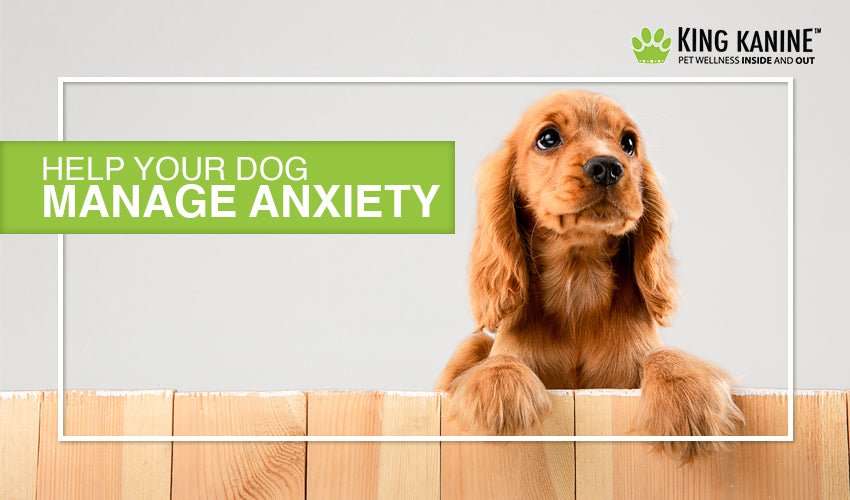
July 23, 2021 2 min read
Stress isn’t exclusive to humans. It is a universal phenomenon, and the effects of stress on animals are very similar to the impact on humans. It causes the body to release adrenaline and cortisol. These chemicals cause the heart to beat faster and suppress the immune system.

Animals differ in the way they show symptoms. For example, anxious pets tend to become agitated and aggressive. Some pets whine or bark, and some indulge in destructive behavior like damaging doors, shoes, and furniture.
If you have a pet showing signs of anxiety, here are a few things you can do to help.
Dogs display anxiousness for a variety of reasons. It could be from fear, separation from pet owners, or aging. For example, some dogs fear loud noises like thunderstorms and fireworks, visual stimuli, or strange surroundings. If your pet rarely goes in the car, a car ride could be highly stressful.
Separation anxiety is also common in pets, affecting around 14% of dogs. When left alone or separated from close family members, they tend to become anxious, indulging in undesirable behaviors like destroying furniture, urinating, and constant whining.
Age is another factor that contributes to anxiety. Older dogs are prone to cognitive dysfunction syndrome, an age-related issue similar to Alzheimer’s in humans.
If the anxiety is separation-related, try to train your pet to manage this. Don’t make leaving and coming back a huge issue, and ignore the pet for a few minutes after you return and then calm them down. You could also leave them with a recently worn t-shirt or establish a routine that tells your dog you are going and will be back.
If your dog barks unnecessarily or shows signs of aggressiveness, consider using a muzzle when taking the pet outside. A muzzle isn’t a sign of a dangerous dog. On the contrary, it is a sign of a responsible owner.
Also, consider that health issues like hypothyroidism, brain tumors, or injuries could cause aggression in dogs. First, talk to your vet to see if there is an underlying problem. If the problem isn’t health-related, contact a professional dog trainer. You can also try desensitization, which introduces the pet to the source of anxiety in small doses to help them manage the problem.
Several over-the-counter, natural calming supplements could help manage anxiety and other issues like noise phobia. CBD oil for dogs may help with stress and chronic pain.
Are you looking for CBD for dogs? Visit us!